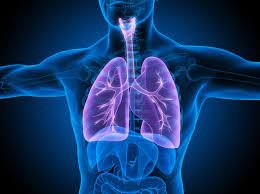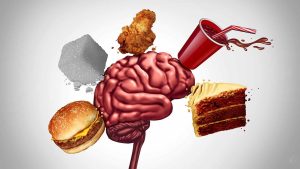Fast Food Effects on Human Health Fast food is a popular meal choice but lacks nutrition and is heavy in calories. Almost every aspect of your body could be impacted if you consume too much of it.
The Popularity of Fast Food
Many fast-food establishments now list the number of calories in each item. But this is just one consideration that needs to be made while assessing its healthfulness.
Fast food is typically quite low in nutrients. asserts that several generally dangerous compounds are commonly found in fast food. It has a lot of sugar, salt, trans or saturated fats, and processed preservatives and additives. There are also a few beneficial nutrients lacking.
However, not all fast food is unhealthy, so you may make informed decisions by learning the nutritional content of various fast food options. This information is available on the websites of most large restaurants.
Nevertheless, even the healthiest fast food options are typically heavy in sodium, sugar, trans and saturated fats, and fats. The Office for Health Promotion and Disease PreventionAccording to a reliable source, the average American consumes excessive amounts of these food ingredients. Take $20 OFF Orders over $150 with code TAKE20
1: Impact on the Reproductive System

The ingredients found in fast food and junk food may affect your ability to conceive.
Processed food has been shown in one research to contain phthalates. Phthalates are substances that can interfere with the physiological effects of hormones. High exposure to these substances may cause problems with reproduction, including problems with a fetus’s development.
2: Impact on the Lungs

Consuming excessive amounts of calories from fast food may lead to weight gain. Obesity may result from this.
Breathlessness and other respiratory issues, such as asthma, are more likely to occur in obese people.
The excess weight can put a strain on your heart and lungs, and even light exercise may cause symptoms to appear. Breathing problems could occur when you’re exercising, walking, or climbing stairs.
Eating out might make keeping track of calories more difficult. Studies show that consumers frequently estimate menu items’ caloric content incorrectly. Shop New Halloween Arrivals Now
3: Impact on the Mental Health

Fast food consumption can have an impact on both your physical and mental health.
A 2020 study found that eating fast food and sugary drinks increased the incidence of mental health issues in middle school students in China.
According to research published in 2018, 14-year-old participants’ body mass index (BMI) and inflammation were found to be greater when they had a Western diet heavy in red meat, takeaway, and refined foods. When they were 17 years old, this was linked to mental health problems and depression symptoms.
4: Effect on the Bones and Skeletal System

Acid reflux can be exacerbated by the carbohydrates and sugar found in processed and fast cuisine. Tooth enamel can be dissolved by certain acids. Cavities may form as a result of bacteria taking hold of your teeth as the enamel wears away.
Complications with your muscle mass and bone density might also result from obesity. Obesity may increase the incidence of bone fractures, particularly in older persons, and lower bone quality. Maintaining a nutritious diet and regular exercise are crucial for building muscle, which supports your bones, and preventing bone loss.
5: Obesity

Fast food typically contains little fiber. Fibre helps you feel fuller for longer after a meal because it feeds the healthy bacteria in your gut. Therefore, eating fast food frequently may make it more difficult for you to suppress your appetite, which may lead to overeating and weight gain.
Eating more or larger servings of fast food might accelerate weight gain because it is high in calories.
Being overweight increases the strain on your bones and joints, which can cause joint discomfort and raise your risk of developing osteoarthritis.
6: Your Heart System

Fast food’s high salt content elevates your body’s sodium levels, which in turn raises blood pressure. Your risk of a heart attack, heart disease, kidney disease, heart failure, and stroke is increased by high blood pressure.
High quantities of saturated fat in fast food can raise your risk of heart attack and stroke because they can cause high cholesterol and atherosclerosis, or narrowing arteries.
7: Diabetes is a Risk You Face

Fast food items often contain highly processed carbohydrates, which have a high glycemic index and quickly turn into sugar. Your blood sugar levels will jump suddenly after a fast food meal due to the combination of these factors and the high sugar content of fast food. Your pancreas produces more insulin as a result, which lowers your blood sugar levels.
So, your body may become less sensitive to insulin as a result of these frequent blood sugar rises over time. In reaction, your pancreas produces more insulin. However, type 2 diabetes develops when the insulin-producing cells in your pancreas gradually wear out.
Type 2 diabetes raises your chance of high blood pressure, atherosclerosis, heart disease, and stroke, among other organ and system damages that can affect your eyes, kidneys, nerves, and other body parts.
8: Effect on Your Mood

Fast food’s high sugar and highly processed carbohydrate content can create rapid spikes and crashes in your blood sugar levels, which can make you feel drained and irritable.
Fast food’s deficiency in vitamins, minerals, and other nutrients might also make you feel depressed.
9: Effect on Your Skin

Fast food’s high salt and high saturated fat content can dry up and irritate your skin while also changing your hormones and raising your risk of acne.
Excessive sugar intake can also be harmful to your skin. This is because sugar hurts the structure of the protein collagen, which keeps your skin supple. Your skin looks older when it has damaged collagen.Get 50% Off Women’s Tops, Tanks, Jackets, Shorts & Leggings
Conclusion
Fast food often has large amounts of sodium, sugar, trans and saturated fats, calories, and artificially processed ingredients and preservatives. Numerous well-conducted studies have established the detrimental consequences of consuming excess amounts of these food components on one’s health.
Fast food has an instant impact on inflammation, blood sugar, and blood pressure. . It might also indicate that a person is not getting enough of certain nutrients in their diet. Fast food consumption can cause long-term problems with the immune system, inflammation, heart health, affect your body’s Mass, and Digestion.
However, not all fast food is bad for you. While some fast-food establishments could focus on providing healthier options, others might use fewer of these substances in their dishes.
To maintain their health, people should generally try to limit how much fast food they eat and seek foods that are lower in fat, sugar, salt, and total carbs.
Frequently Asked Question
Does eating fast impact your health?
Eating in a leisurely manner improves your health, particularly in terms of nutrition, weight, and digestion. Overeating can lead to gas and bloating since it increases the amount of air that is swallowed. Digestion is aided by chewing your food slowly and thoroughly, which breaks down larger food particles into smaller ones.
Why is junk food bad for our health?
Due to its taste and ease of preparation, fast food is a popular option; nevertheless, it is typically low in nutrients and high in calories, sugar, and fat. Frequent fast food consumption has been linked to adverse effects on the body and may raise your chance of developing type 2 diabetes, obesity, and high blood pressure, among other problems.
What occurs if you eat fast food more often than twice a week?
Consuming fast food too frequently can be harmful to your health. According to a previous 2012 study, persons of Chinese Singaporean descent who ate Western-style fast food at least twice a week were more likely than those who ate little to no fast food to acquire type 2 diabetes and pass away from coronary heart disease.
Does eating fast food affect memory?
Your brain’s health is undoubtedly greatly influenced by your food. Inflammatory eating habits that are heavy in processed foods, sugar, unhealthy fats, and refined carbohydrates might raise your risk of developing diseases like dementia and Alzheimer’s as well as impaired memory and learning.
Is junk food and fast food different from each other?
Junk food is defined as having very little nutritional value, but fast food is defined as readily available food that can be purchased at cafés or restaurants rapidly. We purchase fast food and junk food from these establishments in place of consuming home-cooked meals that fit within a balanced diet.










